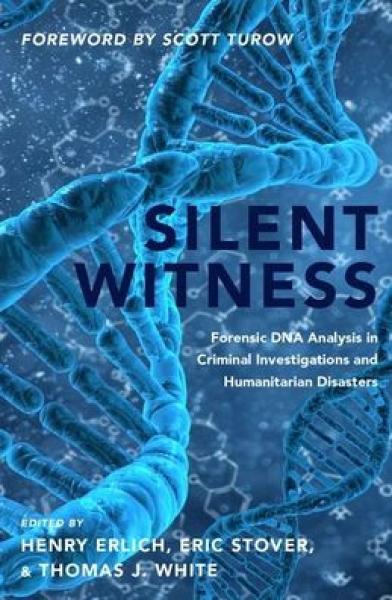Description
Yet, many of the scientific, legal, societal, and ethical concepts that underpin forensic DNA analysis remain poorly understood, and their application often controversial.
Told by over twenty experts in genetics, law, and social science, Silent Witness relates the history and development of modern DNA forensics and its application in both the courtroom and humanitarian settings. Across three thematic sections, Silent Witness tracks the scientific advances in DNA
analysis and how these developments have affected criminal and social justice, whether through the arrests of new suspects, as in the case of the Golden State Killer, or through the ability to identify victims of war, terrorism, and human rights abuses, as in the cases of the disappeared in
Argentina and the former Yugoslavia and those who perished during the 9/11 attacks.
By providing a critical inquiry into modern forensic DNA science, Silent Witness underscores the need to balance the benefits of using forensic genetics to solve crime with the democratic right to safeguard against privacy invasion and unwarranted government scrutiny, and raises the question of what
it means to be an autonomous individual in a world where the most personal elements of one's identity are now publicly accessible.
"Forensic DNA evidence has helped convict the guilty, exonerate the wrongfully convicted, identify victims of genocide, and reunite families torn apart by war and repressive regimes. Yet many of the scientific, legal, and ethical concepts that underpin forensic DNA evidence remain unclear to the general public, judges, prosecutors, defense attorneys and students of law, forensic sciences, ethics, and genetics. Silent Witness examines the history and development of DNA forensics, its applications in the courtroom and humanitarian settings, and the relevant scientific, legal, and psychosocial issues. This book describesthe DNA technology used to compare the genetic profile of a crime scene sample to that of a suspect as well as the statisticalinterpretation of a match. It also reviews how databases can be searched to identify suspects and how DNA evidence can be used to exonerate the wrongfully convicted. Recent developments in DNA technology are reviewed as are strategies for analyzing sampleswith multiple contributors.Silent Witness recounts how the Grandmothers of the Plaza de Mayo searched for children kidnapped during military rule in Argentina as well as recent efforts to locate missing children in El Salvador. Other chapters examine the role that DNA forensics played in the identification of victims of genocide in Bosnia and terrorism in the post 9/11 era. Social anthropologists, legal scholars and scientists then explore current applications of DNA analysis in human trafficking, mass catastrophes, border policies affecting immigration, and the ethical issues associated with privacy, informed consent and the potential misuse of genetic data"--
"There are many books on the science of forensic DNA profiling. There are many books on the legal issues its raises. There are none as comprehensive and effective as Silent Witness in bringing together the thoughts of leading scientists, lawyers, and other researchers on the history of this
revolutionary forensic science, the most recent advances and applications, and the ethical and policy issues it poses across the globe." -- David Kaye, Distinguished Professor Emeritus, The Pennsylvania State University, and Regents' Professor Emeritus, Arizona State University
"This book traces the history of the fascinating forensic DNA technology and provides a comprehensive discussion of the many issues raised by it -- the science, ethics, privacy, and many more. It is an essential book for students and scholars and indeed for the interested layperson." -- Richard J.
Goldstone, former Chief Prosecutor of the ICTY and ICTR and retired Justice of the Constitutional Court of South Africa
"This book is a great additional to the tool kit all of us have who seek truth and justice, whichever side of the courtroom we call home." -- Brenda Hollis, Consultant, International Criminal Law and Procedure, former Chief Prosecutor SCSL/RSCSL
"This remarkable text brings together experts -- from academia and the field -- to share their knowledge of the science, law, and ethics around the use of emergent DNA technologies to bring justice, social repair, and closure in the wake of genocide, conflict and other humanitarian crises, including
on the U.S. border. This book is essential reading for anyone interested in exploring the intersection of science and criminal justice, transitional justice, and peace-building." -- Beth Van Schaack, Leah Kaplan Visiting Professor of Human Rights, Stanford Law School and Faculty Affiliate, Stanford
Center for Human Rights & International Justice
Product Details
- Oxford University Press, Brand
- Oct 23, 2020 Pub Date:
- 0190909455 ISBN-10:
- 9780190909451 ISBN-13:
- 416 Pages
- 9.1 in * 6.1 in * 1.2 in Dimensions:
- 1 lb Weight:




